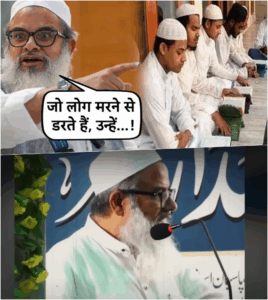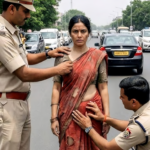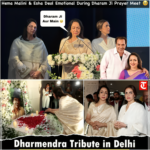A Tense Standoff: Mahmood Madani’s Fiery Speech on UP Madrasa Crackdown Sparks Nationwide Debate
In the heartland of Uttar Pradesh, a storm is brewing. The state government’s recent crackdown on madrasas has ignited a fierce debate, with many questioning the motives and implications of the campaign. At the center of this controversy is Mahmood Madani, the president of Jamiat Ulama-e-Hind, whose fiery speech during the “Save Madrasas Conference” in Kanpur has sent shockwaves across the nation. His warning—”If the government chooses hostility, the fight will be one of life and death, with no middle ground”—has not only drawn attention to the plight of madrasas but also sparked a broader discourse on religious freedom, governance, and the future of education in India.
.
.
.

The Government’s Crackdown on Madrasas
In recent months, the Uttar Pradesh government has launched a campaign aimed at scrutinizing and regulating madrasas across the state. Officials claim the initiative is intended to identify and shut down unregistered or illegal institutions while ensuring that legitimate madrasas meet modern educational and safety standards. The government has emphasized the need for proper documentation, fire safety measures, and adherence to child welfare regulations in these institutions.
However, the campaign has been met with skepticism and resistance from many in the Muslim community, who see it as a targeted attack on their religious and cultural institutions. Critics argue that the government’s actions are less about reform and more about harassment, with legitimate madrasas being subjected to unnecessary scrutiny and bureaucratic hurdles. This tension has set the stage for a growing conflict, culminating in Mahmood Madani’s dramatic intervention.
Mahmood Madani’s Fiery Speech
Addressing a gathering of madrasa leaders, educators, and community members in Kanpur, Mahmood Madani did not hold back. His speech was a passionate defense of madrasas and a scathing critique of the government’s actions. Standing before a charged audience, he declared, “Those who fear death are destined to become slaves. We were not slaves, we are not slaves, and we will never be slaves, Inshallah.”
Madani’s words resonated deeply with his audience, as he painted a stark picture of the challenges facing madrasas. He accused the government of deliberately targeting these institutions despite their compliance with legal requirements. “If a madrasa is built on its own land, with all necessary permissions, fire safety arrangements, and proper facilities for children, then why is it being harassed?” he asked. “If the government still chooses enmity, then remember this: the fight will be one of life and death, with no middle ground.”
His speech took an even more dramatic turn when he declared, “Death is acceptable, but slavery is not. And let it be clear—our deaths will not end the struggle; they will ignite it further.” These words, delivered with conviction and emotion, electrified the crowd and underscored the seriousness of the situation.
A Call for Dialogue and Resistance
Despite his fiery rhetoric, Madani also struck a conciliatory tone, expressing a willingness to engage in dialogue with the government. “For those who are wise and willing to listen, we are ready to bow our heads and carry their shoes on our heads,” he said, emphasizing the importance of mutual understanding and respect. However, he warned that if the government continued to act unreasonably, the community would have no choice but to resist.
Madani’s speech highlighted the delicate balance between seeking dialogue and preparing for confrontation. On one hand, he urged the government to address the community’s concerns and resolve the issue through peaceful means. On the other hand, he made it clear that the community would not back down if pushed to the brink.
The Broader Context: Religious Freedom and Education
The controversy surrounding madrasas in Uttar Pradesh is part of a larger debate about the role of religious institutions in modern India. For centuries, madrasas have been centers of Islamic education, preserving religious traditions while also providing basic education to millions of children. However, in recent years, these institutions have come under scrutiny, with critics accusing them of being outdated and resistant to reform.
The government’s campaign to regulate madrasas is ostensibly aimed at addressing these concerns. By introducing modern curricula, improving infrastructure, and ensuring compliance with safety and welfare regulations, officials argue that they are helping madrasas adapt to the needs of the 21st century. However, many in the Muslim community see these efforts as an attempt to undermine their religious and cultural identity.
This tension is further exacerbated by the political climate in Uttar Pradesh, where issues of religion and identity often dominate public discourse. For many Muslims, the crackdown on madrasas is just the latest in a series of actions that they perceive as discriminatory and hostile. This perception has fueled a sense of insecurity and resistance, as exemplified by Madani’s speech.
The Reaction: A Nation Divided
Madani’s speech has sparked a wide range of reactions across the country. Supporters have praised him for standing up for the rights of madrasas and defending the community against what they see as unjust actions by the government. They argue that his words reflect the frustration and anger of millions of Muslims who feel marginalized and targeted.
Critics, however, have accused Madani of using inflammatory language and escalating tensions. They argue that his rhetoric risks deepening divisions and undermining efforts to address the issues facing madrasas in a constructive manner. Some have also questioned his claim that the government is acting out of hostility, pointing to the stated goals of the campaign as evidence of good intentions.
The government, for its part, has defended its actions, insisting that the campaign is not targeted at any particular community. Officials have emphasized that the goal is to ensure that all educational institutions, regardless of their religious affiliation, meet the same standards of quality and safety. However, this assurance has done little to assuage the concerns of the Muslim community.
The Road Ahead: Dialogue or Confrontation?
As the controversy continues to unfold, the stakes are high for both the government and the Muslim community. For the government, the challenge is to demonstrate that its campaign is genuinely aimed at reform and not discrimination. This will require greater transparency, better communication, and a willingness to address the concerns of the community.
For the Muslim community, the challenge is to balance resistance with dialogue. While it is important to stand up for their rights, it is equally important to engage constructively with the government and seek solutions that benefit both madrasas and the broader society.
Mahmood Madani’s speech has brought these issues to the forefront, forcing the nation to confront difficult questions about religious freedom, governance, and the future of education. Whether this controversy leads to greater understanding or deeper divisions will depend on how both sides choose to respond in the coming weeks and months.
Conclusion: A Defining Moment
The madrasa crackdown in Uttar Pradesh and the fiery rhetoric of Mahmood Madani have brought a simmering conflict into the national spotlight. At its core, this controversy is about more than just madrasas—it is about the kind of society India wants to be. Will it be a society that values diversity and dialogue, or one that is divided by suspicion and hostility?
As the nation watches, the choices made by the government and the Muslim community in the days ahead will have far-reaching implications for the future of religious freedom, education, and social harmony in India. One thing is certain: this is a defining moment, and the stakes could not be higher.
News
Missing PG Student Monica from Darbhanga CM College Found in Shocking Condition—Police Stunned
Missing Darbhanga CM College Student Monica Found Safe—Reveals She Left Home Willingly to Marry A week-long mystery surrounding the disappearance…
Chaos on the Kanwar Yatra: Devotees Go on Rampage, Vandalize Dhaba from Muzaffarnagar to Roorkee!
Kanwar Yatra Turns Violent: Kanwariyas Vandalize Dhabas from Muzaffarnagar to Roorkee Over Onion in Food A shocking wave of violence…
Uproar After Samajwadi Party Leader Sunil Yadav’s Death: Ex-MLA and Brother-in-Law Named in FIR!
Uproar in Sultanpur After Samajwadi Party Leader Sunil Yadav’s Mysterious Death: Former MLA and Brother-in-Law Named in FIR A wave…
Shocking Viral Video: Teacher Beats Student with Stick in Bihar School—Discipline or Violence?
Bihar School Turns Battleground: Viral Video Shows Teacher Beaten Brutally by Angry Parents—Discipline or Violence? A shocking video has taken…
Forced to Strip at Knifepoint: Obscenity in the Name of Jobs—What’s Happening in Uttar Pradesh?
Job Promise Turns Nightmare: Woman Forced to Undress at Knifepoint in Uttar Pradesh Official’s Quarters Uttar Pradesh: A shocking video…
UP Education Minister Injured in Road Accident as Convoy Cars Collide
UP Education Minister Gulab Devi Injured in Road Accident as Convoy Cars Collide Hapur, Uttar Pradesh: Uttar Pradesh’s Education Minister,…
End of content
No more pages to load










